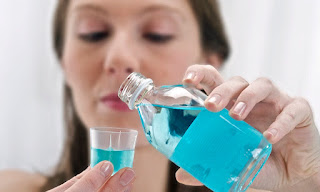Everything You Should Know About Mouthwash
Everything you should know about mouthwash. we'll examine how some mouthwashes differ and how they should best be used.
 |
| Everything you should know about mouthwash |
In the case of mouthwashes, two types can basically be distinguished, the therapeutic mouth rinses and those for daily use.
While only a few years ago, mouthwashes were only used after dental treatment by the order of dentists, today the use of mouthwashes is part of daily dental care.
We already wrote about why you should use mouthwash . This time, we'll examine how some mouthwashes differ and how they should best be used.
Therapeutic and traditional mouthwash
The therapeutic mouthwashes usually contain stronger active ingredients with which oral complaints such as, for example, aphthous ulcers, gingivitis, dry mouth, etc. can be demonstrably treated.Mouthwash for therapeutic purposes may only be used as a remedy, prolonged use may result in discoloration of the teeth.
The main task of traditional mouthwashes for daily use is the maintenance of oral hygiene and the prevention of diseases in the oral cavity. There are preventive mouthwashes for tooth decay, gingivitis and tartar, but they can also choose "enamel protection", "anti-erosion" and mouthwash for tooth whitening.
When is it recommended to use mouthwash?
For existing oral complaints, therapeutic mouthwashes should be used. If we want to use it preventively, we should choose based on ingredients.Particularly recommended is the use of mouthwash for braces , for those who have implants or crowns or even after a thorough brushing, your feel that your teeth are still not clean enough or certain areas can not beeffectively cleaned. All questions should be discussed with your dentist, who can also provide useful advice on your oral hygiene.
How to use mouthwashes
The mild mouthwashes can also be used everyday, but the frequent use of excessive mouthwash can irritate the oral cavity.
The use of mouthwashes is not suitable for children under the age of 6 years, the alcoholic mouthwashes should only be used over 12 years.
If you regularly use fluoridated toothpaste, it is recommended to use a mouthwash that has a reduced fluoride content (between 100-250 ppm) because the excessive intake of fluoride can be detrimental.
It is important to know that the use of mouthwash does not replace regular and thorough teeth cleaning. Excessive use can even be harmful. Therefore, you should always follow the instructions of the dentist or the instructions for use on the bottle.
Even with regular dental care and use of mouthwash, the condition of your teeth should be checked at least once a year by a dentist.











No comments: